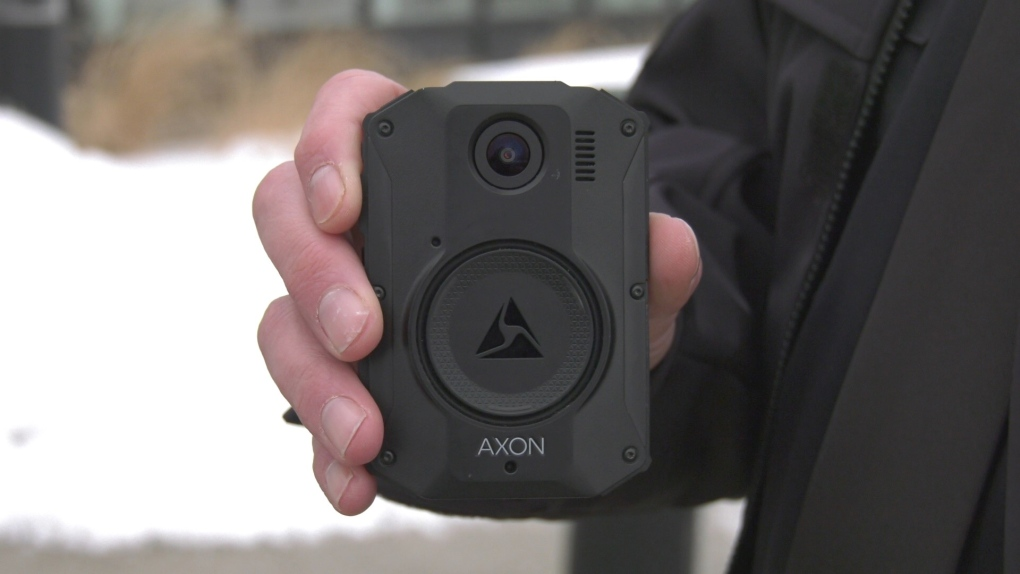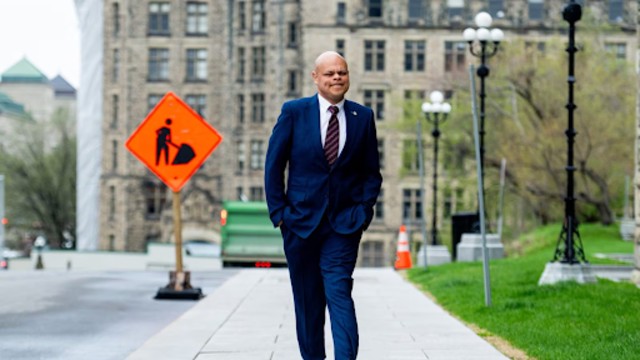
On Tuesday, March 1, 2022, a South Simcoe Police officer is seen holding a body-worn camera, which is set to be employed in a trial initiative. The photograph was taken by Katelyn Wilson for CTV News.
In a proactive move to curb escalating instances of abuse targeting referees, a youth soccer association in Quebec's Eastern Townships is set to outfit its officials with body cameras for the upcoming season. Martin Tremblay, president of the Minor Soccer Association of Windsor, underscored the increasing challenges faced by referees, particularly those between the ages of 14 and 17, who have been enduring verbal assaults not only from parents but also from coaches.
Tremblay emphasized that the decision to introduce body cameras stemmed from a genuine concern for the safety of referees, including his daughter, who has been officiating games. The hope is that the presence of cameras will encourage a more positive demeanour from parents, potentially quelling volatile situations on the field.
The initiative follows a pilot project launched last year by the Ontario Soccer Association, which distributed body cameras to referees across 11 districts in the province. The project, akin to those adopted by certain police forces, aims to document instances of physical or mental abuse encountered by referees during their duties. A report evaluating the effectiveness of the pilot is expected later this year, with interest from other leagues keen on adopting similar measures.
Referee Ernesto Iannuccilli, affiliated with the Dorval Soccer Association, voiced the need for action to address the challenge of retaining and recruiting referees, particularly those in their teenage years who find it difficult to cope with the abuse. The introduction of body cameras is seen as a potential deterrent against unruly behaviour.
The decision to deploy body cameras has not been without controversy. Soccer Lac St-Louis, while emphasizing sensitivity campaigns to foster rule adherence, expressed a preference for focusing on good reporting and addressing repeat offenders without resorting to body cameras. General manager Robert D'Alesio remains optimistic about tracking data to pinpoint problematic individuals causing disruptions.
In a notable incident last spring, a video captured a coach verbally abusing a referee during a match in Montreal, reigniting the debate on the necessity of body cameras. The Lakeshore Soccer Club, although not planning to implement body cameras, expressed support for the Minor Soccer Association of Windsor's initiative, highlighting the importance of having tangible proof to deter abusive behaviour.
Chloe Parsons, director of refereeing at the Lakeshore Soccer Club, stressed the significance of prevention through awareness campaigns and training. Parsons advocated for a better understanding of referees' roles, urging parents, fans, coaches, and spectators to recognize that referees are individuals with emotions, someone's child, and not immune to the impact of verbal abuse.
In summary, a youth soccer association in Quebec's Eastern Townships plans to equip referees with body cameras to address escalating instances of abuse on the field. The decision comes in response to challenges retaining referees, particularly teenagers, and follows a similar pilot project in Ontario. While some express optimism about the deterrent effect, others prefer a focus on reporting and awareness campaigns to foster respect for referees.















